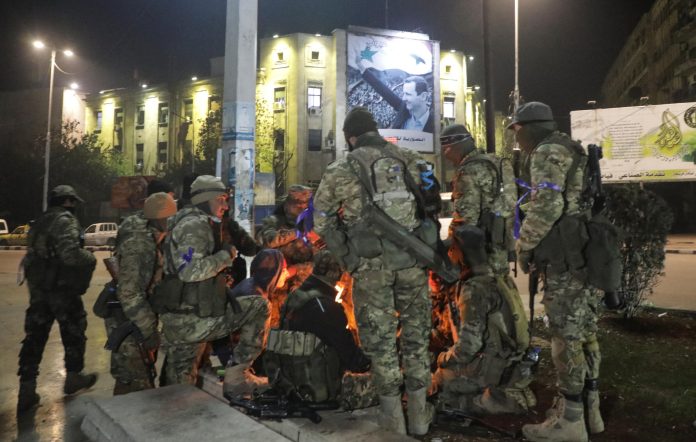Syrian rebels dealt another blow to Bashar al-Assad's regime, capturing the key city of Hama. After several days of fierce fighting, the government troops were forced to leave their positions, announcing a retreat. This opposition victory could be a turning point in a war that has lasted more than a decade.
Hama has an important strategic importance. Located about a third of the way between Aleppo and Damascus, the city played the role of one of the main strongholds of the Syrian government. Its fall opens the way for the rebels to the central city of Homs, an important transport and logistics hub. Homs is the gateway to the Syrian capital, so its potential loss would be an even greater blow to the government.
The offensive of the rebels, which began from the northeastern districts of Hama, was accompanied by the symbolic liberation of the central prison. Prisoners who had been in the custody of the regime for years were released, which raised the morale of both the rebels and the local population. Meanwhile, the government troops left the city, citing the need to avoid civilian casualties. However, this decision is perceived by many as a demonstration of the weakness of the regime, which is gradually losing control over the central regions of the country.
Local residents greeted the release with elation. Footage broadcast by Al-Jazeera TV channel shows crowds of people taking to the streets to greet the rebels. For many residents of Hama, this was a chance for a new life after a long period of government control.
The capture of Hama was a continuation of the successful offensive of the rebels who had earlier liberated Aleppo. This victory significantly strengthens their position in the central part of Syria and poses a real threat to Damascus. Bashar al-Assad's government will now have to find new ways to hold on to its position, and its allies — Russia and Iran — may be forced to step up military support.
For the international community, the fall of Khama is of particular importance. Western countries that support the opposition can intensify their diplomatic efforts, because the balance of power in the war is gradually changing. At the same time, Assad's allies, faced with new challenges, may face the need to revise their strategy.
Against the background of these developments, the main question remains whether the opposition will be able to use this victory to continue its offensive on Homs and later on Damascus. Khama's fall shows that the opposition retains the initiative, but the war remains far from over. Victories on the battlefield do not guarantee a final resolution of the conflict, but only create new challenges for both sides.


